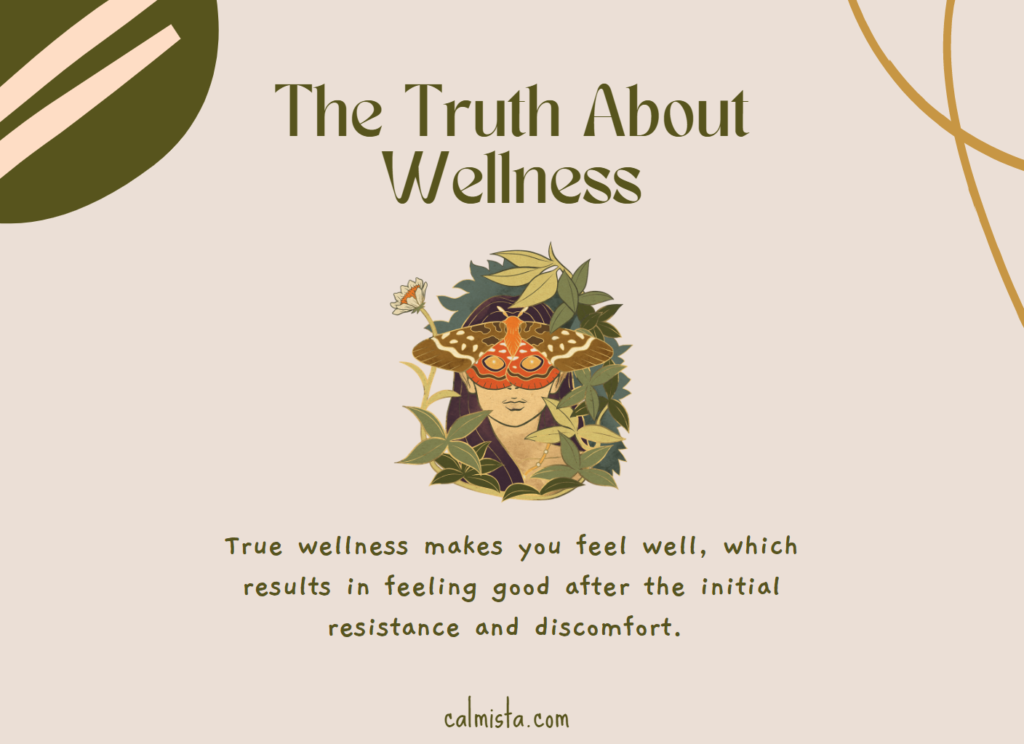
The surprising truth about wellness: many associate wellness with “feeling good,” but it is not only “feeling good.” It is about being your best, which includes being well. While feeling good and wellness have areas of overlap, not all wellness feels good, and some ways of feeling good are not always in your best interest.
Many people do not associate the best practices to achieve wellness with feeling good. Healthy eating, meditation and mindfulness, regular exercise, and being empathetic and kind to others often do not sound fun to people less familiar with their merits.
Science produces studies constantly endorsing the merits of not overeating, consuming more vegetables, nuts, and whole food, reducing and managing stress, exercising in nearly all its forms, and connecting with others intentionally. Anyone who does one of these things can annoy those around them with their praise of the practices, especially those who have yet to pursue wellness. Meanwhile, many will err by trying to “feel good” by eating unhealthy comfort foods. Many also refuse to exercise because it makes them uncomfortable. Unconsciously they may isolate themselves or associate only with those of similar sentiments and increase their stress with time-wasting unhealthy habits like smoking, drinking alcohol, and sitting for hours watching television or their devices.
The pursuit of feeling good is marketed incessantly to us, hiding the truth about wellness and threatening society by encouraging selfishness, overconsumption, and waste instead of cooperation, conservation, and equality. It is even more pronounced now. The shallow pursuits of materialism, fast fashion, attention-seeking, and comfort result in dissatisfaction and are unhealthy mentally and physically. “Feeling good” leads to feeling bad, especially in its ultimate pursuit, abuse of mind-altering substances like drugs and alcohol, which only temporarily mask the miseries of life with their harmful effects.
True wellness makes you feel well, which results in feeling good after the initial resistance and discomfort. Exercise, for example, is challenging and stresses your body, but in healthy ways that make your body stronger, more resistant to illness, better able to handle stress, and results in tremendous satisfaction (and, occasionally, frustrating injuries). Eating healthy can still taste great, leads to less adverse effects on the environment, is less wasteful, and can provide a sense of accomplishment and satisfaction. Meditation and mindfulness can seem boring and pointless, but they are good exercises for the mind and can lead to deeper insights into one as a person and help you appreciate every moment in your life. Being kind and reaching out to others helps everyone do better.
So, to be well and to achieve wellness, you may have to overcome biases against it established over years of marketing to make you instead choose instant feeling good, which can be an unhealthy and destructive pursuit. Keep trying to find ways you are more able to resist what seems comfortable but is the path instead to unwellness. It is a daily challenge that you will get better and better at with each good decision. Do not let marketers, the greedy and lazy hide the truth about wellness and ruin your precious life. You do not have to buy into the whole wellness market scheme either. Be yourself but let the pursuit of wellness help you be your best self.
Calmista has additional tools and resources to help you grow holistic wealth and be your best self.

Leave a Reply
You must be logged in to post a comment.